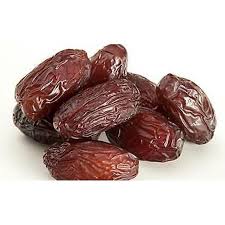Buah Kurma: Challenges Faced by Malaysian Date Farmers

The Growing Significance of Buah Kurma in Malaysia
Buah kurma, commonly known as dates, are becoming increasingly significant in domestic production in Malaysia. Traditionally, dates were primarily imported to fulfill local demand. However, there is a growing interest among Malaysian farmers to cultivate dates locally, aiming to reduce dependence on imports and tap into the potential of the domestic market. Despite this enthusiasm, date farmers in Malaysia face several challenges in their pursuit of successful domestic production.
Challenges in Climate, Soil, and Water Availability
Date cultivation requires specific climatic conditions, including long, hot summers and low humidity. While Malaysia’s tropical climate generally provides favorable conditions, certain regions may lack the necessary temperature variations and arid conditions required for optimal date growth. Date palms also require well-drained soil with good water retention properties. Some areas in Malaysia may have soil conditions that are less suitable for date cultivation, leading to challenges in achieving ideal yields. Additionally, water availability and irrigation practices can pose challenges, particularly in areas where water resources are limited or inconsistent.
Knowledge and Technical Expertise
Limited knowledge and technical expertise in date cultivation practices present significant challenges for Malaysian farmers. Date farming is a specialized field that requires specific skills and knowledge, including proper tree maintenance, pruning techniques, pollination, and pest management. Farmers may face difficulties in accessing comprehensive training programs and resources specific to date cultivation. This lack of expertise can impact crop productivity and overall success in domestic production.
Infrastructure and Post-Harvest Handling
Inadequate infrastructure and post-harvest handling facilities pose challenges for Malaysian date farmers. Efficient post-harvest handling is crucial to maintain the quality and shelf life of dates. However, the lack of proper facilities for sorting, cleaning, grading, and packaging can result in quality deterioration and reduced market value. Insufficient storage and transportation infrastructure may also lead to wastage and higher production costs.
Market Information and Marketing Strategies
Lack of market information and effective marketing strategies further contribute to the challenges faced by Malaysian date farmers. Understanding consumer preferences, market trends, and demand patterns is essential for farmers to make informed decisions about production and marketing. Limited access to market intelligence and inadequate marketing initiatives can hinder the competitiveness of Malaysian dates in the domestic market. Farmers may struggle to position their products effectively and reach target consumers, affecting their sales and profitability.
Promoting Domestic Date Production: Solutions and Opportunities
Overcoming the challenges faced by Malaysian date farmers requires collaborative efforts, research, and investment. Here are some potential solutions and opportunities to promote domestic date production:
Research and Knowledge Exchange:
Investing in research and development specific to date cultivation in Malaysia can generate valuable insights and best practices. Collaborative efforts between agricultural institutions, research organizations, and farmers can facilitate knowledge exchange and technical training programs.
Infrastructure Development:
Improving infrastructure for post-harvest handling, including sorting, grading, and packaging facilities, can enhance the quality and market value of Malaysian dates. Additionally, investments in storage and transportation infrastructure can minimize wastage and ensure timely delivery to markets.
Market Development and Promotion:
Efforts should be made to gather market intelligence, understand consumer preferences, and develop effective marketing strategies. Collaborations between farmers, industry associations, and government agencies can help promote Malaysian dates domestically and internationally. Participating in trade fairs, exhibitions, and online platforms can expand market reach and visibility.
Capacity Building:
Providing training and capacity-building programs specifically tailored to date farming can enhance technical expertise among Malaysian farmers. This can include workshops, seminars, and on-site demonstrations conducted by agricultural experts and experienced date farmers.
Conclusion: Nurturing the Growth of Malaysian Date Farming
While Malaysian date farmers face various challenges in domestic production, there are opportunities to overcome these obstacles and foster the growth of buah kurma cultivation. By addressing climate and soil limitations, improving technical expertise, enhancing infrastructure, and adopting effective marketing strategies, Malaysia can boost its domestic date production industry. Collaborative efforts between stakeholders, including farmers, researchers, government agencies, and industry associations, are crucial for success.
With the right investments in research, infrastructure, and capacity building, Malaysian date farmers can overcome challenges related to climate, soil conditions, knowledge gaps, and post-harvest handling. This will not only increase domestic production but also enhance the competitiveness of Malaysian dates in the market.
Promoting domestic date production offers economic opportunities for farmers, contributes to food security, and reduces reliance on imports. It also allows consumers to enjoy locally grown, fresh, and high-quality dates fruit. By nurturing the growth of the Malaysian date industry, the country can establish itself as a self-sufficient and significant player in the date market.
In conclusion, while challenges exist, the future of dates production in Malaysia looks promising. By addressing the obstacles and implementing the suggested solutions, Malaysian date farmers can overcome the challenges and pave the way for a thriving domestic date industry. With continued support, investment, and collaboration, Malaysia can establish itself as a renowned producer of high-quality dates, meeting both domestic and international demand.
Key Highlights:
– Buah kurma, or dates, are gaining significance in domestic production in Malaysia.
– Malaysian date farmers face challenges related to climate, soil conditions, and water availability.
– Limited knowledge and technical expertise in date cultivation pose difficulties for farmers.
– Inadequate infrastructure and post-harvest handling facilities hinder production and market access.
– Lack of market information and marketing strategies affect the competitiveness of Malaysian dates.
– Collaborative efforts, research, and investment can help overcome these challenges and promote domestic date production.